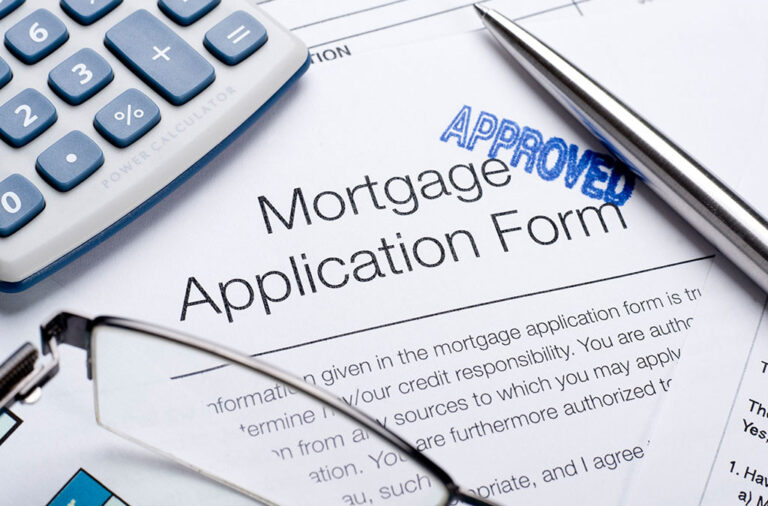Traditional mortgage fraud includes situations in which homebuyers and/or lenders falsify information to obtain a home loan. Homebuyers should never sign mortgage documents that have incomplete or inaccurate information.
- Mortgage Rescue and Loan Modification Scams: Many so-called foreclosure rescue companies or foreclosure assistance firms claim they can help struggling homeowners save their home from foreclosure. Some are brazen enough to offer a money-back guarantee. Unfortunately, most of these foreclosure fraudsters take your money and run.
- Reverse Mortgage Scams: Reverse mortgages can be useful products, but have been associated with deceptive practices and allegations of high-pressure sales tactics and the risk of being steered into inappropriate loans and annuities.
There are two distinct areas of mortgage fraud—fraud for profit and fraud for housing.
- Fraud for profit: Those who commit this type of mortgage fraud are often industry insiders using their specialized knowledge or authority to commit or facilitate the fraud. Current investigations and widespread reporting indicate a high percentage of mortgage fraud involves collusion by industry insiders, such as bank officers, appraisers, mortgage brokers, attorneys, loan originators, and other professionals engaged in the industry. Fraud for profit aims not to secure housing, but rather to misuse the mortgage lending process to steal cash and equity from lenders or homeowners. The FBI prioritizes fraud for profit cases.
- Fraud for housing: This type of fraud is typically represented by illegal actions taken by a borrower motivated to acquire or maintain ownership of a house. The borrower may, for example, misrepresent income and asset information on a loan application or entice an appraiser to manipulate a property’s appraised value.
Common Mortgage Fraud Schemes
- Foreclosure rescue schemes: The perpetrators identify homeowners who are in foreclosure or at risk of defaulting on their mortgage loan and then mislead them into believing they can save their homes by transferring the deed or putting the property in the name of an investor. The perpetrators profit by selling the property to an investor or straw borrower, creating equity using a fraudulent appraisal and stealing the seller proceeds or fees paid by the homeowners. The homeowners are sometimes told they can pay rent for at least a year and repurchase the property once their credit has been reestablished. However, the perpetrators fail to make the mortgage payments and usually the property goes into foreclosure.
- Loan modification schemes: Similar to foreclosure rescue scams, these schemes involve perpetrators purporting to assist homeowners who are delinquent on their mortgage payments and are on the verge of losing their home by offering to renegotiate the terms of the homeowners’ loan with the lender. The scammers, however, demand large fees up front and often negotiate unfavorable terms for the clients, or do not negotiate at all. Usually, the homeowners ultimately lose their homes.
- Illegal property flipping: Property is purchased, falsely appraised at a higher value, and then quickly sold. What makes property flipping illegal is the fraudulent appraisal information or false information provided during the transactions. The schemes typically involve one or more of the following: fraudulent appraisals; falsified loan documentation; inflated buyer income; or kickbacks to buyers, investors, property/loan brokers, appraisers, and title company employees.
- Builder bailout/condo conversion: Builders facing rising inventory and declining demand for newly constructed homes employ bailout schemes to offset losses. Builders find buyers who obtain loans for the properties but who then allow the properties to go into foreclosure. In a condo conversion scheme, apartment complexes purchased by developers during a housing boom are converted into condos, and in a declining real estate market, developers often have excess inventory of units. So developers recruit straw buyers with cash-back incentives and inflate the value of the condos to obtain a larger sales price at closing. In addition to failing to disclose the cash-back incentives to the lender, the straw buyers’ income, and asset information are often inflated in order for them to qualify for properties that they otherwise would be ineligible or unqualified to purchase.
- Equity skimming: An investor may use a straw buyer, false income documents, and false credit reports to obtain a mortgage loan in the straw buyer’s name. Subsequent to closing, the straw buyer signs the property over to the investor in a quit claim deed, which relinquishes all rights to the property and provides no guaranty to title. The investor does not make any mortgage payments and rents the property until foreclosure takes place several months later.
- Silent second: The buyer of a property borrows the down payment from the seller through the issuance of a non-disclosed second mortgage. The primary lender believes the borrower has invested his own money in the down payment, when in fact, it is borrowed. The second mortgage may not be recorded to further conceal its status from the primary lender.
- Home equity conversion mortgage (HECM): An HECM is a reverse mortgage loan product insured by the Federal Housing Administration to borrowers who are 62 years or older, own their own property (or have a small mortgage balance), occupy the property as their primary residence, and participate in HECM counseling. It provides homeowners access to equity in their homes, usually in a lump sum payment. Perpetrators taking advantage of the HECM program recruit seniors through local churches, investment seminars, and television, radio, billboard, and mailer advertisements. The scammers then obtain an HECM in the name of the recruited homeowner to convert equity in the homes into cash. The scammers keep the cash and pay a fee to the senior citizen or take the full amount unbeknownst to the senior citizen. No loan payment or repayment is required until the borrower no longer uses the house as a primary residence. In the scheme, the appraisals on the home are vastly inflated and the lender does not detect the fraud until the homeowner dies and the true value of the property is discovered.
- Commercial real estate loans: Owners of the distressed commercial real estate (or those acting on their behalf) obtain financing by manipulating the property’s appraised value. Bogus leases may be created to exaggerate the building’s profitability, thus inflating the value as determined using the ‘income method’ for property valuation. Fraudulent appraisals trick lenders into extending loans to the owner. As cash flows are lower than stated, the borrower struggles to maintain the property and repairs are neglected. By the time the commercial loans are in default, the lender is often left with dilapidated or difficult-to-rent commercial property. Many of the methods of committing mortgage fraud that is found in residential real estate are also present in commercial loan fraud.
- Air loans: This is a nonexistent property loan where there is usually no collateral. Air loans involve brokers who invent borrowers and properties, establish accounts for payments, and maintain custodial accounts for escrows. They may establish an office with a bank of telephones, each one used as the fake employer, appraiser, credit agency, etc., to fraudulently deceive creditors who attempt to verify information on loan applications.
Tips for Avoiding Mortgage Modification Scams
Homeowners struggling to make their mortgage payments should beware of con artists and scams that promise to save their homes and lower their mortgage debt or payments.
If you are struggling to pay your mortgage and are seeking a mortgage modification, keep the following tips in mind:
- You can apply to the federal Home Affordable Modification Program (HAMP) on your own or with free help from a housing counselor approved by the U.S. Department of Housing and Urban Development (HUD). Applying to the program is always FREE. For more information on how to apply, call the Homeowner’s HOPE™ Hotline at 1-888-995-HOPE (1-888-995-4673) or visit www.MakingHomeAffordable.gov.
- Only your mortgage servicer has the discretion to grant a loan modification. Therefore, no third party can guarantee or pre-approve your HAMP mortgage modification application.
- Beware of anyone seeking to charge you in advance for mortgage modification services – in most cases, charging fees in advance for a mortgage modification is illegal.
- Paying a third party to assist with your HAMP application does not improve your likelihood of receiving a mortgage modification. Accordingly, beware of individuals or companies that ask you for payment and tout success rates or claim to be “experts” in HAMP. If an individual or company claims to be affiliated with HAMP or displays a seal or logo representing the U.S. government in correspondence or on the Web, you should check the connection by calling the Homeowner’s HOPE™ Hotline.
- Beware of individuals or companies that offer money-back guarantees.
- Beware of individuals or companies that advise you as a homeowner to stop making your mortgage payments or to not contact your mortgage servicer.














